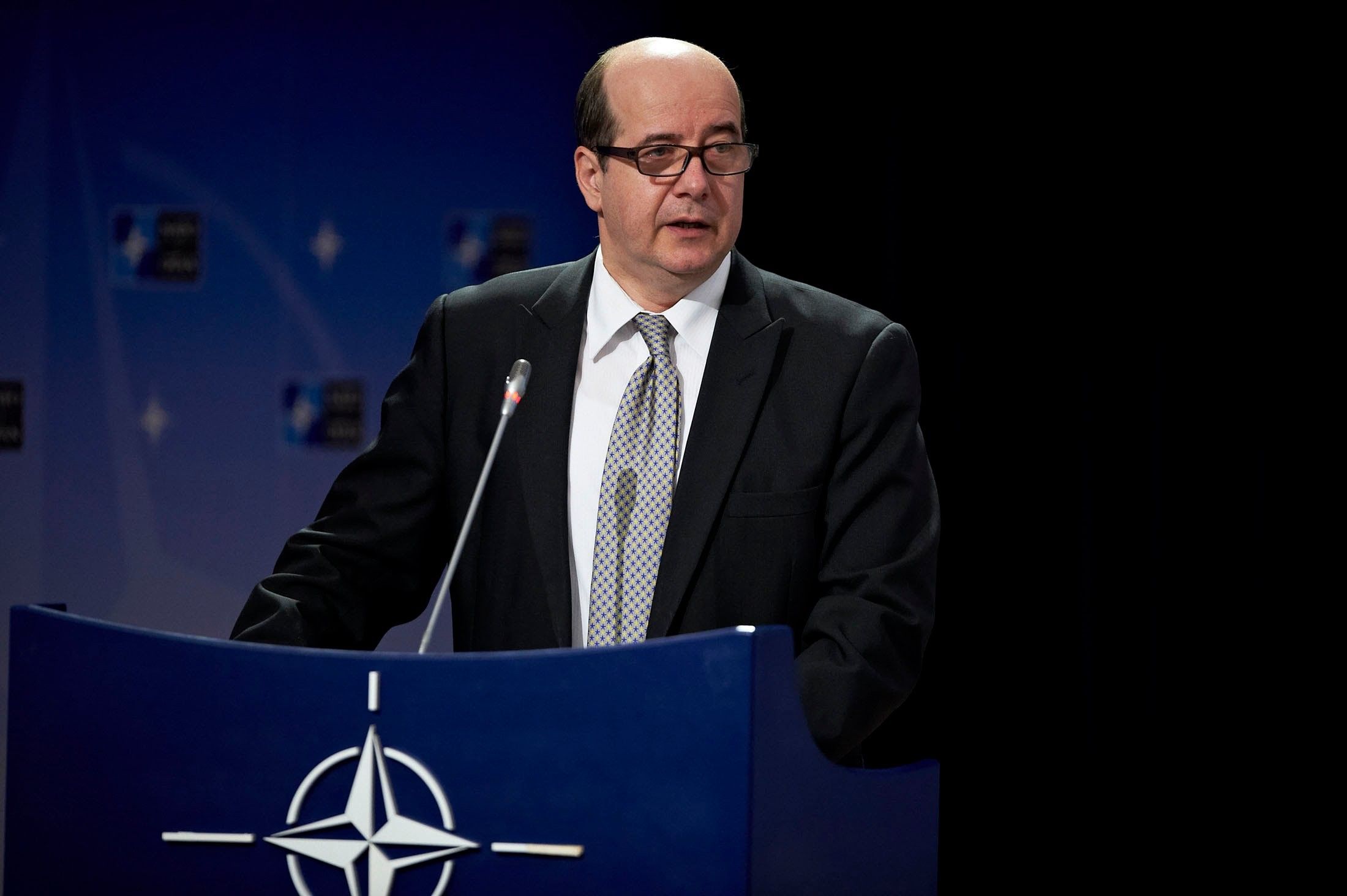
NATO Assistant Secretary General: "NATO and Ukraine share a common interest in discussing lessons learned from hybrid warfare"
NATO Assistant Secretary for Emerging Security Challenges, Ambassador Sorin Ducaru ahead of his visit to Ukraine has told UNIAN about the Alliance’s joint projects with Ukraine within the framework of the Science for Peace and Security program.
Ukraine and NATO have been cooperating increasingly actively within the framework of the Science for Peace and Security (SPS) program, although such cooperation has attracted little media coverage. The range of joint activities is extremely wide – from assistance in humanitarian demining to projects on telemedicine.
The visit to Ukraine of NATO Assistant Secretary General for Emerging Security Challenges, Ambassador Sorin Ducaru, who is directly involved in NATO-Ukraine non-military cooperation, is scheduled for May 26-27. In an interview with UNIAN ahead of his visit, Mr Ducaru elaborated on joint projects in which Ukraine and NATO are engaged in the SPS framework, the outcome of this collaboration and its future prospects.
What do you want to achieve during your visit to Ukraine?
The main objective of this official visit is to hold high-level bilateral meetings with government officials to take stock of the current level of practical cooperation in the Science for Peace and Security (SPS) Program and to explore potential future areas for joint collaborative activities. These areas of future cooperation under SPS will also be addressed with the Ukrainian scientists and experts.
While in Ukraine, I want to underline the concrete cooperation that we have with Ukraine and the practical results that it is yielding. Therefore, I will visit two important, flagship projects with Ukraine under the umbrella of the SPS program: First, an SPS-sponsored effort to support humanitarian demining in Ukraine in cooperation with the State Emergency Service of Ukraine. And second, a project led by scientists from Ukraine and France, that helps to decontaminate a hydrocarbon polluted military site in Kyiv with the provision of equipment and training. These two projects are also an important example of civil-military cooperation with Ukraine in the framework of the SPS program.
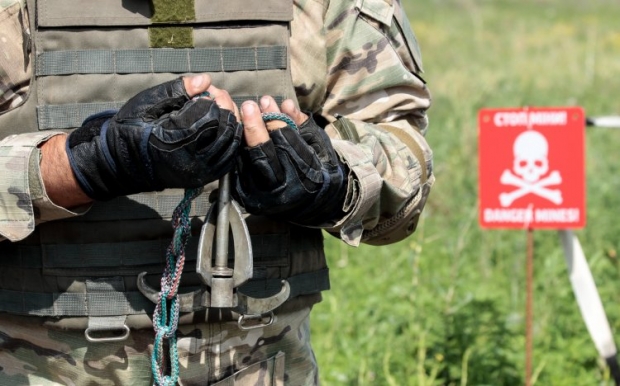
On top of that, I am very much looking forward to open and attend the SPS Information Day at the National Academy of Sciences of Ukraine during my visit. This event will bring together dignitaries, university rectors, scientists and experts from Ukraine. One of the main aims of the event will be to take stock of and showcase the results of SPS cooperation with Ukraine, and the results of around 25 ongoing SPS projects with Ukrainian participation will be presented in a poster session. At the same time, the event will provide an opportunity to forge networks among experts and scientists.
So this is an important visit that demonstrates the fruits of NATO’s partnership with Ukraine, especially in the field of security-related civil science cooperation and sets the level of ambition for future cooperation.
What is your assessment of the NATO-Ukraine cooperation in the framework of the SPS program?
Ukraine has traditionally been a very active partner in the SPS program: Engagement between Ukraine and the SPS program dates back to 1991 and has been deepening ever since. A NATO-Ukraine Joint Working Group on Scientific and Environmental Cooperation meets on a regular basis to discuss ongoing cooperation and identify priority areas for potential future cooperation.
Today, we have 40 ongoing SPS activities with Ukraine, making it the most active NATO-SPS partner and largest beneficiary of the SPS program.
Has this cooperation changed since the beginning of the war in the East of Ukraine and if “yes,” how?
In response to the crisis in Ukraine and following the political guidance provided by NATO Foreign Ministers in April 2014, practical cooperation with Ukraine, including in the field of science and technology, has been stepped up significantly. As I mentioned, today, Ukraine is the first beneficiary of the SPS program.
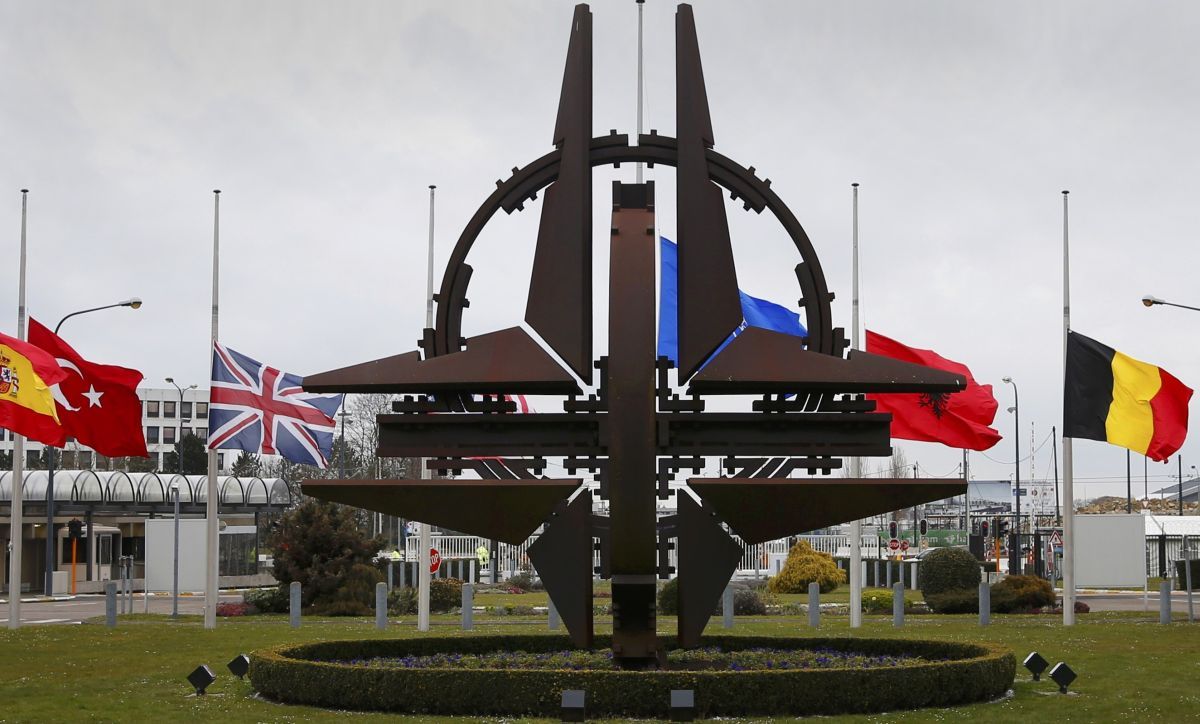
Many of the SPS activities currently ongoing are large-scale SPS flagship projects that help Ukraine to deal with the effects of the crisis, including the SPS project in support of humanitarian demining and the initiative to develop a multinational telemedicine system. Other activities address a wide variety of emerging security challenges such as counter-terrorism, energy security, and defense against chemical, biological, radiological, nuclear (CBRN) agents.
What is the advantage and what are the challenges for Ukraine and NATO in such cooperation?
Cooperation with Ukraine in the framework of the SPS program is a win-win collaboration for all parties. The sharing of expertise and exchange of knowledge is of mutual benefit.
SPS projects, in particular, provide funding for training and equipment and help to build capacity in Ukraine and other NATO partner countries. I am also very proud to say, that the SPS program provides excellent opportunities for young scientists to kick-start their career: Many young scientists have benefitted from stipends and got the chance to work together with leading experts in their field in the context of SPS projects.
SPS activities also help to forge international networks and often serve as a catalyst for additional cooperation, to the benefit of all project participants. A large number of internationally renowned experts work at Ukrainian research institutes and universities, providing interesting and unique opportunities for collaboration for their counterparts in NATO countries.
Some of the areas that Ukrainian experts are interested in cooperating in, such as environmental security, are currently not a high political priority for Allies. Therefore, we have been seeing less and less SPS activities in these domains being approved. However, the list of SPS key priorities is comprehensive and has provided the background for many successful initiatives in other areas, including advanced technologies with security applications, defense against CBRN agents, and human and social aspects of security.
What is, from your point of view, a “success story” in this cooperation, and what is a “failure”?
I am proud to say that SPS cooperation with Ukraine boasts a number of success stories. As I mentioned earlier, one of these is the SPS support to humanitarian demining in Ukraine. Another, excellent example for successful civil-military cooperation is a project to develop a Multi-National Telemedicine System between Ukraine, Romania, Finland, the Republic of Moldova and the United States. This project will help to improve access to health services and increase survival rates in an emergency situation. During the EADRCC field exercise Ukraine 2015 that took place in September 2015 in Lviv, these capabilities were, for the first time, successfully live-tested.
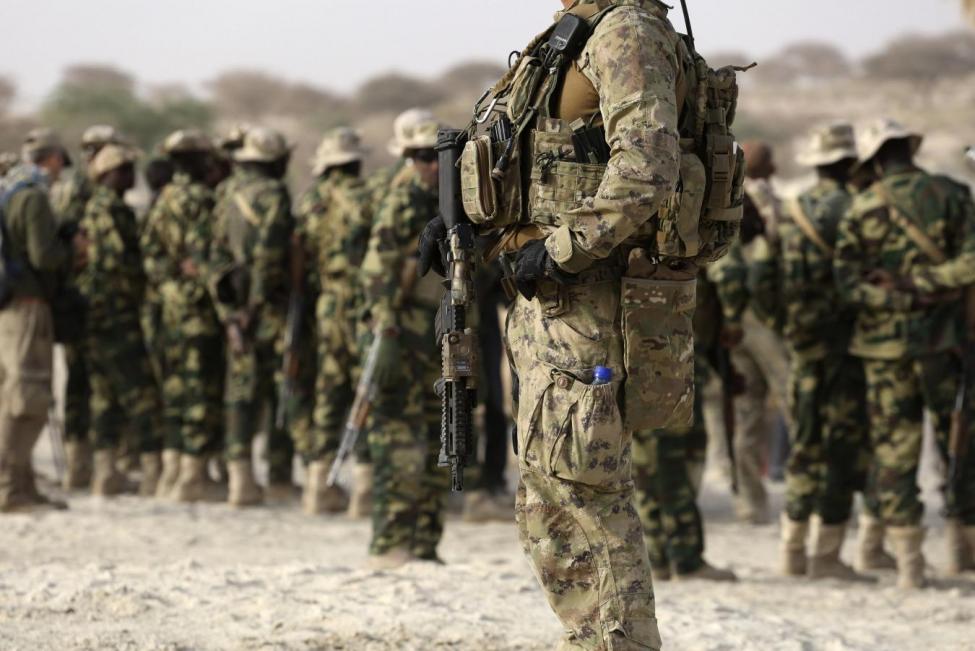
In view of the high standard of Ukrainian science and know-how, it has been possible to implement many SPS projects jointly by experts and scientists from NATO countries and Ukraine. Many excellent SPS activities fall in the field of advanced technologies with security applications, such as the development of an advanced, cost-effective X-Ray generator in Kharkov that can be used for high resolution image detection systems.
I think we could do even better in communicating to the public our cooperation with Ukraine, in explaining to the public what SPS-supported experts and scientists are working on and how it benefits the public. But in terms of substance, results and forging networks, I see cooperation with Ukraine as an absolute success story. With your help and that of other media colleagues, we should just make it more visible to stimulate fresh ideas and projects. Acknowledged success breeds further success!
How can the lessons NATO learned from the war in Ukraine help NATO protect its own borders and deal with information and hybrid warfare? Do you support the idea to create a NATO’s center in Ukraine to study hybrid warfare?
Let me start by emphasizing Allies’ support to Ukraine’s sovereignty and territorial integrity within internationally recognized borders. Allies have also repeatedly stressed they consider the Russian annexation of Crimea as illegal and illegitimate and condemned the destabilizing actions in Eastern Ukraine.
On hybrid threats and tactics, we developed relevant strategy guidelines with a focus on enhancing our resilience, improving our intelligence and early warning, enhancing our cyber defenses, and strengthening our coordination with the EU. At Warsaw, we will take further decisions to enhance our resilience against hybrid warfare and cyber threats. During the ongoing conflict, and even before, Ukraine has been developing its capabilities to counter these threats. As outlined in the NATO-Ukraine Charter on a Distinctive Partnership, NATO and Ukraine share a common interest in discussing lessons learned from hybrid warfare. Allies are interested in maintaining this dialogue.
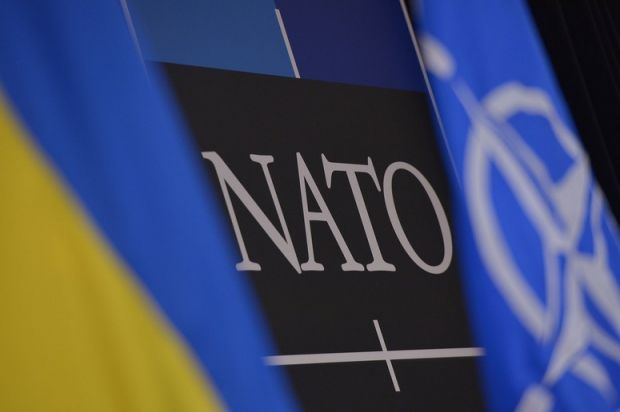
In addition to that, in the framework of the SPS Program, we have had several research workshops on the issue of hybrid warfare, including in the context of Ukraine. These workshops bring together experts on the topic who exchange their views and often result in lessons learned and new insights on how to approach the issue.
Did the Ukrainian government use recommendations of the international experts in the key area of the Comprehensive Security and Defense Sector Review (SPS-funded research workshop on 19-20 May 2015) or from any other project? Do you have any feedback? What is your own assessment on this?
This NATO SPS sponsored workshop engaged civil society and experts and provided a platform for an open dialogue and provided input and advice on the security and defense reform.
One of the most important dimensions of the workshop was its success in drawing on the pool of international subject matter expertise. The workshop had the experts from 14 countries and the organizers were able to share relevant knowledge in the specialized areas of defense planning and defense industry.
Remarkably, following this workshop, the process of Comprehensive Security and Defense Sector Review, in fact, became more effective. At the event, representatives of the National security and Defense Council (NSDC) staff identified the need to invite experts to participate in early stages of drafting security and defense-related bills. Some key reform ideas, such as for example the necessity to create comprehensive Crisis Management System found their reflection in the Concept Paper for Security and Defense Sector Development adopted by the President of Ukraine in March 2016.
The advanced research workshop (ARW) Kyiv network of international and national experts has become the platform for the recently established International expert Parliamentary Inter-Faction Association “Euro-Atlantic Space for Ukraine”. Local ownership of the ARW Kyiv was crucial to its success.
I heard that NATO SPS Program is going to support the project on the development of the innovative 3D mine-detector for the purposes of the Ukrainian Emergency Service and Armed Forces? Can you confirm this?
The multi-year SPS project proposal titled “Development of mine and improvised explosive device (IED) recognition system based on ultrawideband technology” is currently in the evaluation process. The system to be developed under this project will enhance effectiveness and quality of mine/IED recognition and clearance practices and thus seriously increase protection of innocent people, servicemen, as well as equipment and infrastructure compared to what is used today. The Ministry of Defense and State Emergency Service of Ukraine (SESU) are the end-users to benefit from the results of the project.
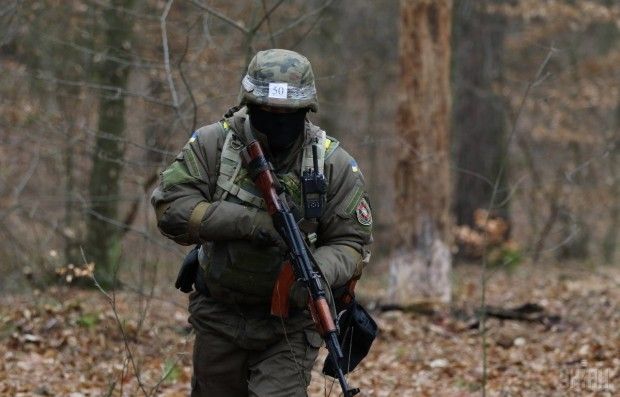
If approved, the project will contribute to the long-term sustainability of NATO`s support to humanitarian demining in Ukraine. We have already two other projects with Ukraine in the field of demining and explosive ordnance disposal (EOD) which is of high priority for Ukraine. The first one is a research project to develop a remotely-operable, robotic, multi-sensor device for detection of un-exploded ordinance (UXO), mines, and IEDs. The second one is a capacity-building flagship project to support humanitarian demining in Ukraine under the responsibility of the SESU. The main goal is to provide operational capability to four SESU EOD teams by delivering equipment and training. This civil project will enable Ukraine to detect and clear landmines and UXOs in Donetsk and Luhansk regions, allowing the local population to return to their homes safely.
What kind of perspective do you see for the NATO-Ukraine cooperation is the framework of SPS?
Over the last two years, we have developed and approved a large number of new SPS activities, and I am glad to oversee their successful implementation.
Against the background of the current political and security context, we will maintain our enhanced cooperation in the framework of the SPS Program. In developing new activities we work closely together with our Ukrainian interlocutors to ensure that our joint activities address priority areas of cooperation for Ukraine and have a tangible impact. The main scope of my visits in Ukraine, the SPS conference day, the meetings with officials, scientists and experts are aimed at laying the ground and exploring fresh ideas for high impact future SPS projects.

How do you assess the status of implementation of the NATO Trust Fund on development cyber-defense capabilities of Ukraine?
Our Cyber Defense Trust Fund is up and running. This Trust Fund will help Ukraine develop technical capabilities to counter cyber threats, to investigate cyber security events and to provide training and advice on policy development. Romania, who is the lead nation, has put forward an ambitious Trust Fund implementation plan which is supported by the financial or in kind contributions of eight nations (Romania, Hungary, Estonia, Portugal, Turkey, Albania, Italy, and the United States). Training and advisory activities have been launched. Estonia has also been providing cyber security trainings since May 2015.
It was announced that in July this year NATO-Ukraine Commission Summit will take place in Warsaw. What Ukraine can expect from this meeting in practical terms?
Although final decisions of Summit formats and agenda have not been made yet, I can confirm to you that Allies are looking forward to a NATO-Ukraine Commission meeting at the highest level at the Warsaw Summit. One of the priorities for the Summit is to step up political and defense cooperation with partners, including Ukraine, and this will be a key framing objective for the NATO-Ukraine Commission work. Our leaders will reaffirm NATO’s continuing commitment to support the sovereignty and independence of Ukraine. They will also make clear that we continue to stand up for the right of all European nations to decide their own future and foreign policy course. We are also preparing to continue practical support to Ukraine. I anticipate that Allies may be willing to provide Ukraine with a package of targeted support, which would go hand in hand with Ukrainian efforts to reform its security and defense sector.
Iryna Somer

